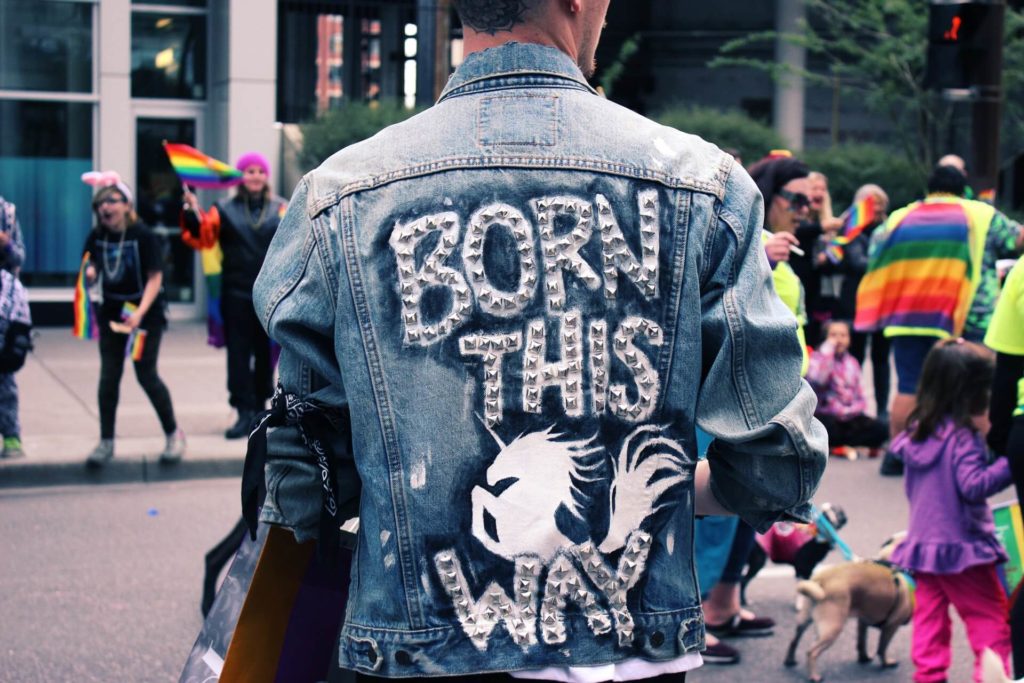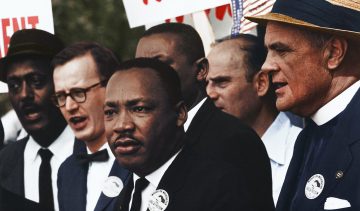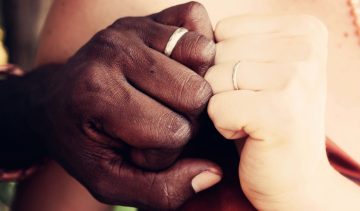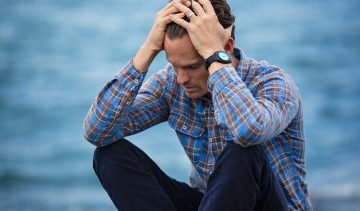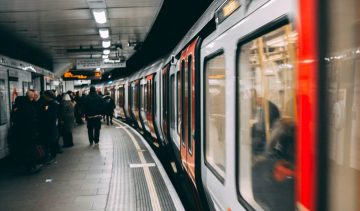When you’re confident you dare to stand up for yourself and at the same time respect others for who they are. Building self-confidence isn’t always easy; a lot of people struggle with it. When you have a disability it can be even harder. I too am disabled and found it difficult to be self-confident. But why is it this hard for disabled people to build a good self-image?
Confidence
You start developing self-confidence at a young age, for example by having loving parents who support and encourage you. But also by having positive experiences with other people: classmates, friends or kids from your sports club, etc. Self-confidence is like a stone foundation on which you stand; every positive experience adds a stone, but negative experiences cause other stones to slowly crumble. Unfortunately, it is far more difficult for people with physical disabilities to build self-confidence. Sometimes we lack good experiences that contribute to that self-confidence, such as participating in a sports club or having a nice job. In addition, I have personally also had negative experiences.
How come I feel less confident as a disabled woman?
You might wonder what those negative experiences are, that happened to me and caused me to feel less confident about myself. You might think, it’s probably not that bad. Below I am sharing some of these experiences:
- You can feel that you are different from other people. You can’t do things that other kids can do. You cannot or may not always play and you often feel like you do not belong. As a child you are often approached differently by adults. Sometimes they favor you out of pity or good intentions. That often doesn’t go well with the other children, which makes you even more of an outsider and gives you the confirmation that you are different from others.
- Sometimes people talk about you as the disabled child. You can hear people say: “Isn’t it terrible, being disabled like that? Also for their parents! Imagine having a child like that, I can’t even bear the thought! Must be hard”. It makes you feel like a burden and that doesn’t have a positive effect on your self-confidence. This feeling is often confirmed by commercials about caretakers for example, saying how they should be supported with their hard work. You feel like you’re the ‘hard work’ they’re talking about.
- Your body is never your own. At least, not if you have a serious disability. You have to be washed and dressed every day. Physiotherapists and doctors, they all work with your body.
- You fall in love. But soon you notice that you’re not seen as a possible candidate for a relationship. You look different from everyone else and it seems like you’ll never get the chance to get into a relationship.
- You go to college and graduate, but people still reject you at job interviews. They even confuse your physical disability with a mental disability sometimes. Or, your physical ability asks for too much adjustment from the employer, which is too much of a hassle.
- It feels like you are not always appreciated. Many people do not know how to deal with your disability. They are shocked because you are different and don’t dare to speak to you. Or, they will go out of their way to prove that they have no problem with the disability at all, and aren’t afraid to bluntly say so.
- The hardest thing for me are people who act like they know what is good for me. Or people that do something for me with genuinely good intentions, without me asking for it. In those situations I have to be assertive in order not to get walked over, and I find that very difficult.
It is hard to be confident if you don’t have a positive self-image. You get fewer building blocks to build a good self-image and that makes it more difficult to be assertive in life. It’s not all doom and gloom; otherwise life wouldn’t be worth living. But it can be difficult sometimes.
A ghetto for people with a disability
In society there is also the idea that we have to feel sorry for people with a disability. In November 1962, a fundraising program was broadcast on Dutch television to build a special village in the west of the city of Arnhem. People with a physical disability could live in this new village, with adapted housing and an adapted infrastructure. The AVRO program was presented by Mies Bouwman and Dutch television viewers raised a total of twelve million guilders. They created a ghetto for the disabled.
In 1989 the NCRV broadcast the Dutch television program Drempels Weg; to raise money for people with disabilities. This action yielded approximately 5 million guilders. Fortunately, the approach of this program was different; its aim was to make existing buildings more accessible for disabled people. Through this program, the program makers did their best to genuinely show that people with disabilities also want to and can participate in our society. And that it is up to everyone to contribute to that!
Progress
Finally, on December 13, 2006, in the United Nations General Assembly, a treaty was signed that protects the rights and dignity of persons with disabilities or disabilities. It took until 2008 for the treaty to enter into force, but it was not until 2016 that the Netherlands started actually working on it. The great aim is that disabled people are allowed to participate in society. In any field!
A long way to go
But, there is still a long way to go. Every two years, The Support Fair is held in the Jaarbeurs in Utrecht. During this fair fantastic and innovative aids for people with a disability are introduced. All of these new developments would certainly benefit the emancipation of people with disabilities. But, unfortunately, practice shows that these fantastic inventions are out of reach for ordinary people. Disabled people are usually unable to afford these aids themselves and municipalities, which are responsible for this, go for the cheapest solution.
Help
It is very important that every disabled person has enough self-confidence to participate in every aspect of this society. That’s why I’ve taken the step to seek help; to work on my self-confidence, to discover that I can be seen, heard and show myself. Also to get an answer to the question “do a disability and self-confidence actually go together?”. This help has brought me a lot: every person, disabled or not disabled, has the right to be seen. And YES, self-confidence and a disability certainly go hand in hand.
NiceDay
Do you find it difficult to build your self-confidence, and would you like to receive some help with that? Click here for more information about online and accessible help via NiceDay
